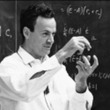The drunkard's walk: how randomness rules our lives
Description
More Details
9780307275172
9780307377548
Excerpt
Similar Titles From NoveList
Similar Authors From NoveList
Published Reviews
Choice Review
Incorporating a fast-paced mix of classic probability quandaries, current events, and background history, The Drunkard's Walk attempts to present the core concepts of probability theory and statistics in a format that is accessible to any motivated reader. Physicist Mlodinow (California Institute of Technology) steadily explains concepts in a manner lacking formulas and technical terminology, yet he succeeds in clearly explaining nonintuitive problems like the infamous Monty Hall problem. Though students in mathematics and related fields may find the topic coverage too simplistic, The Drunkard's Walk can serve as a helpful prelude to probability and statistics for students in other disciplines, particularly in the social sciences. Mlodinow has written for the television programs MacGyver and Star Trek: The Next Generation, and is the author of Euclid's Window (2001) and Feynman's Rainbow (2003), and coauthor, with Stephen Hawking, of A Briefer History of Time (2005). Summing Up: Highly recommended. General readers; undergraduates and graduate students. W. Van Arsdale Wayne State College
Publisher's Weekly Review
A "drunkard's walk" is a type of random statistical distribution with important applications in scientific studies ranging from biology to astronomy. Mlodinow, a visiting lecturer at Caltech and coauthor with Stephen Hawking of A Briefer History of Time, leads readers on a walk through the hills and valleys of randomness and how it directs our lives more than we realize. Mlodinow introduces important historical figures such as Bernoulli, Laplace and Pascal, emphasizing their ideas rather than their tumultuous private lives. Mlodinow defines such tricky concepts as regression to the mean and the law of large numbers, which should help readers as they navigate the daily deluge of election polls and new studies on how to live to 100. The author also carefully avoids veering off into the terra incognita of chaos theory aside from a brief mention of the famous "butterfly effect," although he might have spent a little more time on the equally famous n-body problem that led to chaos theory. Books on randomness and statistics line library shelves, but Mlodinow will help readers sort out Mark Twain's "damn lies" from meaningful statistics and the choices we face every day. (May 13) (c) Copyright PWxyz, LLC. All rights reserved
Kirkus Book Review
Forget about planning for the future: Chaos is king, the random reigns and no system can beat the house odds. So one might conclude from onetime Caltech physicist Mlodinow's spry look at the rising field--and, it seems, publishing trend--of what might be called randomness studies. As he writes, affectingly, his mother, who survived the Holocaust, subscribed to the forget-planning school after her careful sister was consigned to death. Her experience, he writes, "has taught me to appreciate the absence of bad luck, the absence of events that might have brought us down, and the absence of the disease, war, famine, and accident that have not--or have not yet--befallen us." Small comforts, perhaps, but the case studies he assembles point strongly to the essential vanity of human wishes, whether they be efforts to beat the odds at Vegas or to predict the chartbusting potential of a screenplay. On the second note, Mlodinow (Feynman's Rainbow: A Search for Beauty in Physics and Life, 2003, etc.), who knows his Hollywood, quotes a studio executive who once remarked, "If I had said yes to all the projects I turned down, and no to all the other ones I took, it would have worked out about the same." Thus randomness, which plays havoc with probability and makes it devilishly hard for ordinary mortals to discern trends and, moreover, exceptions to trends. Mixing hard science with an easygoing approach that makes liberal but not annoying use of pop-culture references, Mlodinow ventures onto conceptually strange ground: the law of the sample space, for instance, which is supposed to apply "only to outcomes that are equally probable" but manages to find, yes, exceptions. He delights in finding the limits of probability, as with the elderly French woman who mortgaged her desirable apartment to a young lawyer who was to take it over after her death, then proceeded to outlive him--indeed, to attain the age of 122, skewing all the statistics. A science geek's delight, and useful reading for the inveterate gambler of the house. Copyright ©Kirkus Reviews, used with permission.
Publishers Weekly Reviews
A "drunkard's walk" is a type of random statistical distribution with important applications in scientific studies ranging from biology to astronomy. Mlodinow, a visiting lecturer at Caltech and coauthor with Stephen Hawking of A Briefer History of Time, leads readers on a walk through the hills and valleys of randomness and how it directs our lives more than we realize. Mlodinow introduces important historical figures such as Bernoulli, Laplace and Pascal, emphasizing their ideas rather than their tumultuous private lives. Mlodinow defines such tricky concepts as regression to the mean and the law of large numbers, which should help readers as they navigate the daily deluge of election polls and new studies on how to live to 100. The author also carefully avoids veering off into the terra incognita of chaos theory aside from a brief mention of the famous "butterfly effect," although he might have spent a little more time on the equally famous n-body problem that led to chaos theory. Books on randomness and statistics line library shelves, but Mlodinow will help readers sort out Mark Twain's "damn lies" from meaningful statistics and the choices we face every day. (May 13)
[Page 51]. Copyright 2008 Reed Business Information.
































